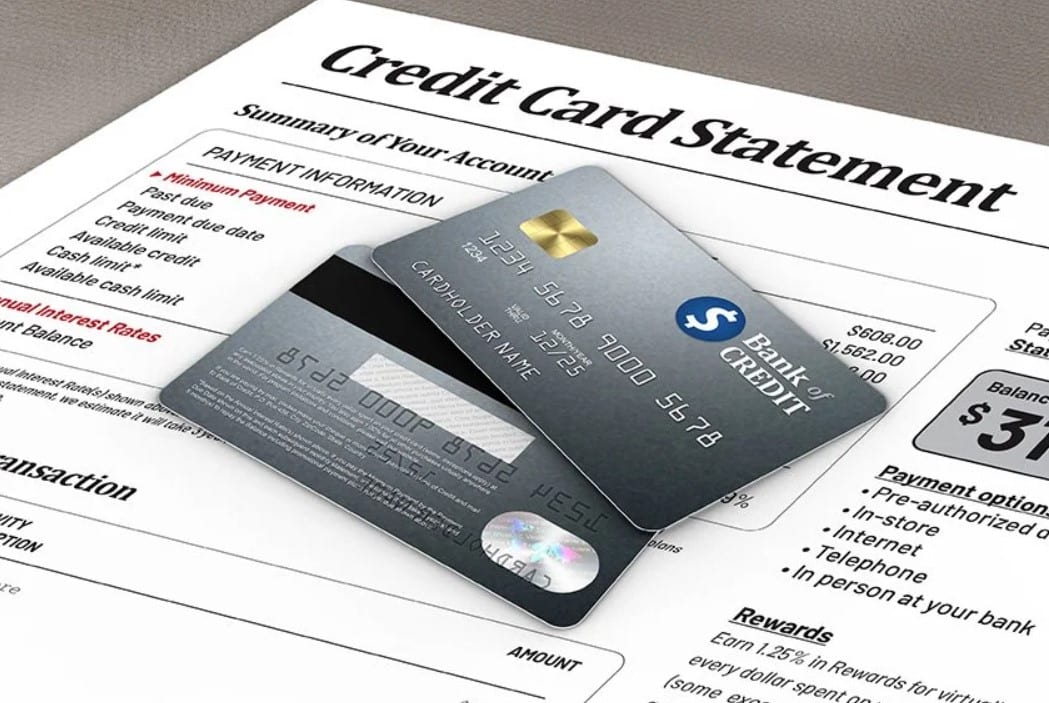Credit cards offer convenience and rewards, but they can also come with a variety of fees that add up quickly. Understanding these fees and knowing how to avoid them can save you a significant amount of money. In this comprehensive guide, we will explore the different types of credit card fees, how to avoid them, and recommend some of the best low-fee credit cards in 2024. Let’s get started!
What are Credit Card Fees?

Credit card fees are charges imposed by the credit card issuer for various services and transactions. These fees can vary depending on the card type, issuer, and how you use your card. Common credit card fees include:
- Annual Fees: A yearly charge for using the credit card.
- Late Payment Fees: Fees for not making the minimum payment by the due date.
- Balance Transfer Fees: Charges for transferring a balance from one card to another.
- Cash Advance Fees: Fees for withdrawing cash from your credit card.
- Foreign Transaction Fees: Charges for using your card internationally.
- Over-the-Limit Fees: Fees for exceeding your credit limit.
- Returned Payment Fees: Charges for payments that are returned due to insufficient funds.
How to Avoid Credit Card Fees

AvAvoiding credit card fees requires careful management and understanding of your card’s terms and conditions. Here are some tips:
1. Choose a Card with No Annual Fee
Many credit cards offer no annual fee, which can save you money each year.
- Example: Chase Freedom Unlimited offers no annual fee and rewards on purchases.
2. Pay Your Bill on Time
Avoid late payment fees by setting up automatic payments or reminders to ensure you always pay on time.
- Tip: Schedule payments a few days before the due date to avoid last-minute issues.
3. Avoid Balance Transfers
Balance transfers can come with hefty fees. If you must transfer a balance, look for cards that offer 0% APR on balance transfers with no transfer fees.
- Example: Citi Simplicity Card offers no late fees or penalty rates.
4. Limit Cash Advances
Cash advances typically come with high fees and interest rates. Instead, consider other options for cash, such as a personal loan or savings.
5. Be Mindful of Foreign Transactions
If you travel frequently, choose a card with no foreign transaction fees.
- Example: Capital One Venture Rewards Credit Card offers no foreign transaction fees and rewards on travel purchases.
6. Monitor Your Credit Limit
Stay below your credit limit to avoid over-the-limit fees. Regularly check your balance and set up alerts for when you’re nearing your limit.
Top Low-Fee Credit Cards in 2024

1. Chase Freedom Unlimited
Chase Freedom Unlimited is an excellent option for those looking to avoid annual fees while earning cashback on purchases.
- Annual Fee: None
- Rewards: 1.5% cashback on all purchases
- Pros: No annual fee, easy-to-earn rewards
- Cons: Requires good to excellent credit
- Features: 0% APR for 15 months on purchases and balance transfers, cashback rewards, fraud protection
2. Citi Simplicity Card
Citi Simplicity Card is perfect for those who want a straightforward card with no late fees or penalty rates.
- Annual Fee: None
- Rewards: None
- Pros: No late fees, no penalty rates, long 0% APR period
- Cons: No rewards program
- Features: 0% APR for 21 months on balance transfers, 0% APR for 12 months on purchases, no late fees
3. Discover it Cash Back
Discover it Cash Back offers generous cashback rewards with no annual fee and a unique cashback match in the first year.
- Annual Fee: None
- Rewards: 5% cashback on rotating categories, 1% on other purchases
- Pros: No annual fee, cashback match in the first year
- Cons: Rotating categories require activation
- Features: Cashback rewards, no foreign transaction fees, FICO score monitoring
4. Capital One Venture Rewards Credit Card
Capital One Venture Rewards Credit Card is ideal for travelers looking for a card with no foreign transaction fees and travel rewards.
- Annual Fee: $95 (waived first year)
- Rewards: 2x miles on all purchases
- Pros: No foreign transaction fees, high rewards rate
- Cons: Annual fee after the first year
- Features: Travel rewards, no foreign transaction fees, TSA PreCheck/Global Entry fee credit
5. American Express Blue Cash Everyday
American Express Blue Cash Everyday is a great card for those who spend a lot on groceries and gas, offering high cashback rates on these categories.
- Annual Fee: None
- Rewards: 3% cashback at U.S. supermarkets, 2% at gas stations, 1% on other purchases
- Pros: No annual fee, high cashback on groceries
- Cons: Foreign transaction fees
- Features: Cashback rewards, purchase protection, Amex offers
Comparison Table
| Credit Card | Annual Fee | Rewards | Pros | Cons | Features |
|---|---|---|---|---|---|
| Chase Freedom Unlimited | None | 1.5% cashback on all purchases | No annual fee, easy-to-earn rewards | Requires good to excellent credit | 0% APR for 15 months on purchases and balance transfers, cashback rewards, fraud protection |
| Citi Simplicity Card | None | None | No late fees, no penalty rates, long 0% APR period | No rewards program | 0% APR for 21 months on balance transfers, 0% APR for 12 months on purchases, no late fees |
| Discover it Cash Back | None | 5% cashback on rotating categories, 1% on others | No annual fee, cashback match in the first year | Rotating categories require activation | Cashback rewards, no foreign transaction fees, FICO score monitoring |
| Capital One Venture Rewards | $95 (waived first year) | 2x miles on all purchases | No foreign transaction fees, high rewards rate | Annual fee after the first year | Travel rewards, no foreign transaction fees, TSA PreCheck/Global Entry fee credit |
| American Express Blue Cash Everyday | None | 3% at supermarkets, 2% at gas stations, 1% on others | No annual fee, high cashback on groceries | Foreign transaction fees | Cashback rewards, purchase protection, Amex offers |
Benefits of Low-Fee Credit Cards

Low-fee credit cards offer an array of advantages for consumers looking to manage their finances efficiently while minimizing costs. This article explores the benefits of opting for a low-fee credit card, highlighting how these cards can save money and provide value beyond their minimal annual fees.
1. Reduced Annual Fees
- Cost-Effective Option : The primary benefit of low-fee credit cards is their minimal annual fees compared to standard credit cards. By choosing a card with lower fees, you can save money on annual charges, making it a cost-effective option for maintaining access to credit.
- Affordable Access to Credit : Low-fee credit cards make it easier and more affordable to access credit without the burden of high annual costs. This affordability is particularly beneficial for individuals who prefer to minimize their credit card expenses while still enjoying the benefits of card ownership.
2. Competitive Interest Rates
- Lower Interest Charges : Many low-fee credit cards offer competitive interest rates on purchases, balance transfers, and cash advances. This can result in significant savings over time, especially for cardholders who carry balances from month to month.
- Financial Flexibility : Lower interest charges provide cardholders with greater financial flexibility, allowing them to manage their cash flow more effectively and avoid accumulating high-interest debt. This can contribute to improved financial stability and long-term debt management.
3. Rewards and Benefits
- Earn Rewards with Minimal Costs : Despite their low fees, some low-fee credit cards offer rewards programs that allow cardholders to earn points, cashback, or miles on their purchases. This enables consumers to benefit from rewards without the expense of higher annual fees.
- Additional Benefits : Low-fee credit cards may also provide additional benefits such as travel insurance, purchase protection, extended warranties, and concierge services. These perks enhance the overall value of the card, making it a practical choice for everyday spending and special purchases.
4. Build and Improve Credit Score
- Establish Positive Credit History : Using a low-fee credit card responsibly can help individuals build or improve their credit score. Timely payments and responsible credit utilization demonstrate financial responsibility to credit bureaus, which can positively impact creditworthiness over time.
- Access to Higher Credit Limits : Maintaining a positive credit history with a low-fee credit card may lead to increased credit limits over time. This expanded credit capacity can provide greater financial flexibility and access to additional credit when needed.
5. Simplified Financial Management
- Manageable Finances : Low-fee credit cards simplify financial management by offering predictable costs and fees. Cardholders can budget effectively without unexpected charges, making it easier to track expenses and maintain control over their finances.
- Online Account Management : Most low-fee credit cards come with online account management tools that allow cardholders to monitor transactions, track spending, set up alerts, and make payments conveniently. This digital accessibility enhances financial oversight and security.
Choosing a low-fee credit card offers numerous benefits, including reduced annual fees, competitive interest rates, rewards and benefits, opportunities to build credit, and simplified financial management. These advantages make low-fee credit cards an attractive option for consumers seeking to maximize value while minimizing costs in their financial lives.
How to Choose the Right Low-Fee Credit Card
When selecting a low-fee credit card, consider the following factors:
- Spending Habits: Choose a card that rewards you for your regular spending categories, such as groceries or travel.
- Credit Score: Ensure you meet the credit score requirements for the card you want.
- Interest Rates: Look for cards with low interest rates to minimize costs if you carry a balance.
- Additional Benefits: Consider cards that offer extra perks, such as purchase protection or travel insurance.
How to Apply for a Low-Fee Credit Card
Applying for a low-fee credit card is a straightforward process:
- Research: Compare different low-fee credit cards to find the best fit for your needs.
- Check Eligibility: Ensure you meet the credit score and income requirements for the card.
- Gather Documents: Prepare necessary documents, such as identification and proof of income.
- Apply Online: Visit the issuer’s website and complete the online application form.
- Wait for Approval: Most issuers provide a decision within minutes or a few days.
- Activate Your Card: Once approved, activate your card and start using it.
You can apply for these low-fee credit cards directly through the issuer’s website. Here are the links to get you started:
- Apply for Chase Freedom Unlimited
- Apply for Citi Simplicity Card
- Apply for Discover it Cash Back
- Apply for Capital One Venture Rewards Credit Card
- Apply for American Express Blue Cash Everyday
FAQs
1. What are the most common credit card fees?
Common credit card fees include annual fees, late payment fees, balance transfer fees, cash advance fees, foreign transaction fees, over-the-limit fees, and returned payment fees.
2. How can I avoid credit card fees?
You can avoid credit card fees by choosing a no-fee card, paying your bill on time, avoiding balance transfers and cash advances, and monitoring your credit limit.
3. Are there credit cards with no foreign transaction fees?
Yes, many credit cards, such as the Capital One Venture Rewards Credit Card, offer no foreign transaction fees, making them ideal for international travel.
4. What should I do if I get charged a fee?
If you are charged a fee, contact your credit card issuer to discuss the charge. In some cases, they may waive the fee as a one-time courtesy.
5. Is it worth paying an annual fee for a credit card?
Paying an annual fee can be worth it if the card offers significant rewards and benefits that outweigh the cost of the fee. Compare the rewards and perks to determine if it’s worth it for your spending habits.
Understanding credit card fees and knowing how to avoid them can help you make smarter financial decisions and save money. Choose the right low-fee credit card for your needs and enjoy the benefits without the extra costs.
